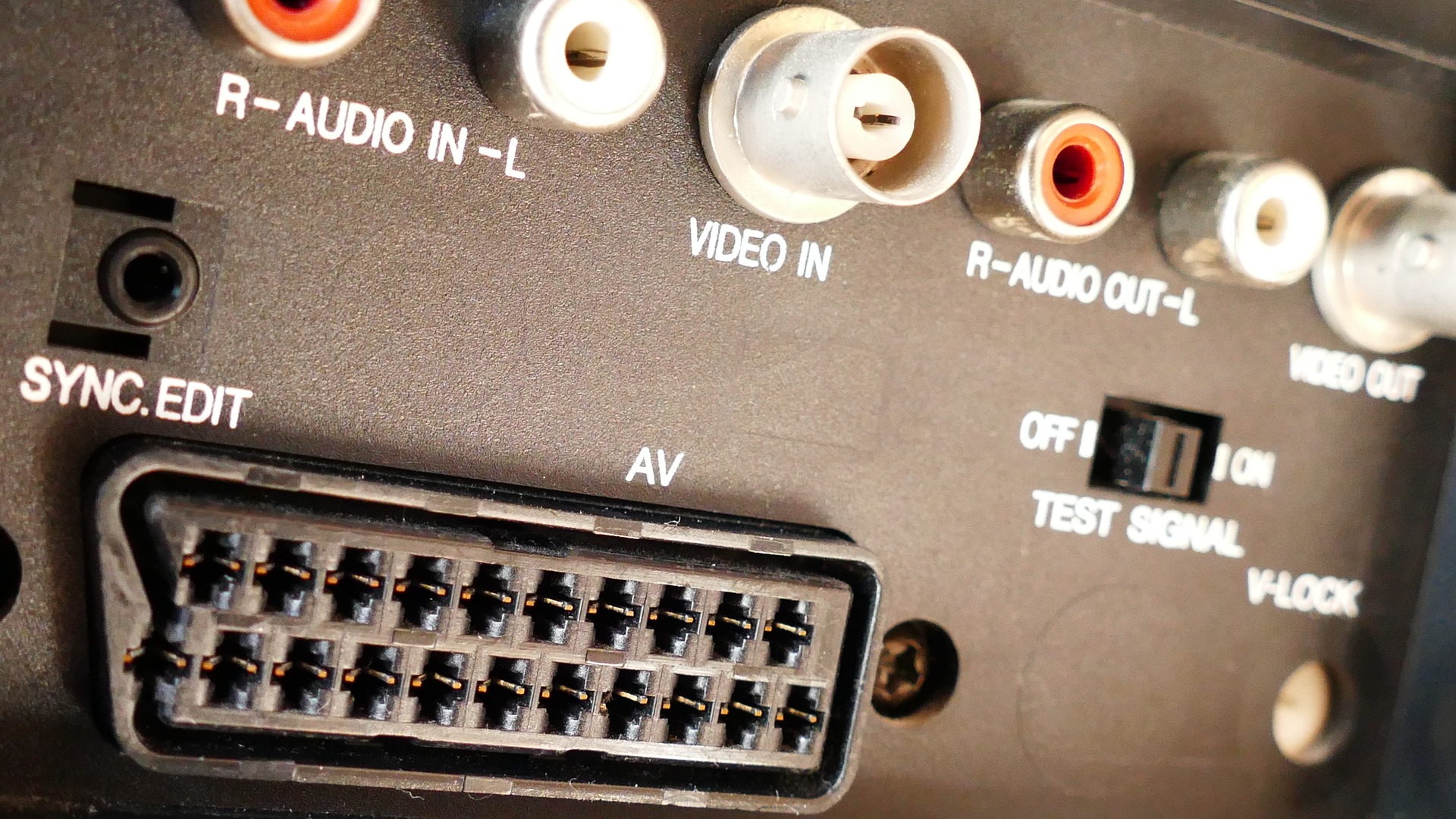You just don’t have the time to stick to the schedule television networks might want you to and in 2020, there is absolutely no reason to. While there might be occasional problems with streaming and you want to keep with your cable plan when it comes to your daily watching, you also want to have control of when you can rest and enjoy your favorite programs. This is where a DVR comes in.
While they don’t get as much press as they used to, being that they’re not the hot new thing, they continue to improve in spades every year and deserve your attention.
There are many on the market, and unless you’re an expert or have been looking for a long time, it’s hard to tell them apart, how to best get one, or what one is best for your on-demand programming needs.
Here in this article, we’ll be looking into the top DVR options you have and discuss what you should look for when getting one.
What to Consider When Getting a DVR:
Everyone will have different needs when deciding on a DVR. You should know if any specific factors are important and you will weigh them differently from everyone else. That’s ok, and we encourage you to make a list of priorities based on what you read below to help you make your final decision later.

Cost: This may seem obvious, but the cost of a DVR is certainly important to most people. Yet, in addition to the cost, you should know that sometimes a DVR also has a monthly service fee in lieu of or even in addition to the cost of the device itself. This can easily add up to the cost of the device itself after a year, so your budget should have an even greater sway over your DVR selection.
Whole-Home Solutions: Do you expect to use the DVR only with one TV, or would you like the entire house (assuming multiple TVs throughout) to have access to DVR services? There are whole-home options and they are not difficult to install or operate, but you should determine what you want in this case before you buy your system.
4K Recording Capability: Not every DVR on the market can record in 4K, even if the
broadcast is in 4k. Naturally, if you don’t have a 4K TV, then this point is effectively moot, and you should consider other factors first.
Memory: The needs of memory are straightforward, and the more, the better. And as more programming is broadcast at HD (almost the standard at this point) and 4k resolution, you’re going to need a lot of it in order to have a collection of programming to enjoy if you’re busy for a few weeks. You might find the memory listed in either GB or TB, but perhaps more often you’ll see it as the number of hours of HD content it can hold.
Simultaneous Recording Capability: What happens when you want to watch a few programs but they’re all on at the same time? You can’t multitask, but a DVR can. The top products can record over a dozen programs simultaneously, but you likely won’t need so many. Consider the size of your family and if all of your favorites compete in the same few timeslots. Realistically, as long as there are a few slots, you shouldn’t worry about this too much.
User Interface: This can be a tricky thing to review before purchase, but if you can get a hint as to how the UI would operate and whether it matches your preferences, you’d be doing yourself a favor. Watching a few videos or getting a test run, if possible, can work wonders.
Device Connectivity: Do you want to be able to watch programs recorded on your DVR on your smartphone or tablet? That’s certainly possible, all you need to do is make sure that’s an available option with your selection. It’s a great way to get many of the advantages of streaming with all the advantages of your cable plan.
Additional Features and Conveniences: Sometimes voice controls are nice, and other options such as a remote finder button or auto-skipping commercials can be wonderful if you want to make life easier for yourself when watching TV. These little things are hard to quantify, and someone’s idea of convenience can be a hassle for someone else, but ultimately, if you’re already interested in a DVR, see what features, bells, and whistles it has to offer. Those might be the tipping point one way or the other.
There may be other considerations, and new technologies may change the landscape, so always take a quick look to see how devices are changing and improving.
The 4 Best DVRs
Instead of just picking out the best five overall DVRs or the most technologically advanced, we decided to take a “best in class” approach, considering the different types of interested parties might be looking for one. Consider the categories and recommendations below, and then look into the details of the device that we think would serve you and your family best.
Best All-Around DVR: TiVo Bolt+
If you want one of the most modern DVRs available, with all of the tools and features, and are ok with paying something of a premium for it all, then the TiVo Bolt+ should be the first item on your list. You’ll need to get the box separately, and it can get expensive. You will need to get a service contract with TiVo for either a lifetime plan ($550), a monthly plan of about $15 a month, or a yearly plan of $150.
There are other options from TiVo that we could and do recommend, but the Bolt+ simply reaches the next level in terms of hardware and allows for a bit more versatility in its recording with its extra tuners and storage space. Modern DVRs aren’t just about their original purpose anymore; they have become all-in-one entertainment centers in their own right. Just make sure you can afford it.
Main points and features:
- Six tuners, allowing your family to each record their favorite show without fear of conflict.
- 3 TB of storage, which we are certain is far more than the average family needs. You’ll be able to store up to about 600 hours of HD content, which to put it into perspective is 25 days strait of content.
- 4K support, for current high-end programming and some future-proofing.
- If you’re looking for an OTA (over the air option), you’ll want to look elsewhere. There is no such functionality with the Bolt+, and besides, there are far cheaper and more functional options for those without a cable subscription.
- A small size to allow for easy placement in your living room or entertainment centers with an interesting design to help it easily stand out.
- OTT services for streaming support, so you can use the Bolt+ to watch Hulu, Netflix, YouTube, and more.
- Voice control capability.
- The ability to use TiVo Mini extenders to use the Bolt in other rooms.
- UI and guide functionality including genre filtering, an HD interface, and more. TiVo has some of the easiest to use services in the DVR space, and that might be worth the extra cost to you.
- The ability to skip commercials with just a button press.
Best Simple DVR: Contour Record 6 HD-DVR
Do you just want a DVR for the occasional show? Do you want a simple option, knowing you won’t use or won’t understand the more advanced features that in all honesty, most people don’t use? If any of these things are the case, then you might want to consider looking at the Contour Record 6 first, because it is an excellent yet simple DVR. One generally gets the DVR with services from Cox as part of several of your TV packages, so Cox users will want to check this out first before moving onto TiVo or another brand.
Notably, this category does exclude the simple OTA DVRs (of which there are many) which would be cheaper and simpler but aren’t able to work with your cable subscription, severely limiting their use to you.
If you’re looking for a cheaper option from Cox, then you might want to investigate the Contour Record 2 HD-DVR. It is mostly the same as the Contour Record 6, except with less storage space and it can only record two programs at once.
Main points and features:
- Using it allows for up to 340 hours of HD content to be recorded using its 2TB of storage. With that amount of storage, you should be able to store up all your favorite shows for half a year.
- The ability to record up to six channels at once, which is more than enough for anyone looking for a general setup, even a larger family.
- Additional parental control options.
- Several excellent remote options, perhaps the most prominent among them being the Contour 2 Voice Remote, which, as the name suggests, has advanced voice control features.
- The ability to pause live TV, as well as rewind or use a fast-forward feature, as you might expect from a modern DVR.
- The easy option to schedule a recording or the recording of an entire season of a series.
- The Cox Contour App can allow you to remotely schedule DVR recordings, which is great if you’re traveling or away from home.
- Compared to other services, you will not be able to watch recorded shows on another device or on-the-go. Users will likely be able to, with the use of their apps, watch certain on-demand or live programs.
- A Mini Box which will allow you to bring functionality to other rooms for a small monthly cost.
Best DVR Included with Your Cable Subscription: Genie DVR HR54
(DIRECTV)
Many of the DVRs people have are provided to them by their cable company as part of a subscription, or with the functionality included as part of the cable box. This could be an important factor for anyone hoping to decide which cable company to sign up with.
We would like to highlight the Genie DVR HR54 for being the best-included option we could find among the major providers. Alternatively, the Genie DVR HR44 is nearly as good, except with no Ultra HD compatibility and the HR54 is more energy efficient. There is also the Genie 2 that’s currently available, but we currently can’t say it’s reliable enough to recommend.
Main points and features:
- It comes included in DIRECTV’s packages, with no extra costs or fees to worry about.
- It allows you to record up to five shows at once, and while that is a bit lower than much of the competition, it is still more than enough for the average household.
- It is 4K Ultra HD compatible, allowing you to record whatever you want at the intended resolution. This will require a Genie Wireless Mini to work, but getting one shouldn’t be an issue if you explain you’re interested.
- Using it, you can watch up to eight channels on one screen, which might be excellent for sports fans.
- Speaking of sports, the Genie DVR has the Genie Sports feature
- Using Genie Minis (which do cost $7 a month each, or you can buy them separately), the Genie DVR can support up to 8 additional TVs, so your whole family can watch what they’d like across the household.
- Ports include: Satellite in, infrared receiver, ethernet in, component video out, composite video out, s-video out, digital coax out, HDMI out, RJ11 out, Serial AT attachment in, and USB in.
- The storage of the device is about 1TB, which equates to about 200 hours of HD programming or 800 hours of standard programming. This is less than the competition, but given that there are no monthly fees associated with this DVR, we think the tradeoff is worth it.
- The devices are relatively sleek in design and easy to place in a home.
- Voice control via Alexa.
- Some excellent programming options, allowing you to schedule recordings of an entire season of programming.
Best DVR for Sports and Events: Xfinity X1 DVR
If you want a DVR to only records special events and sports, as opposed to the usual shows you might not have time for, then it might be best for you to find a DVR that can provide you with the best possible viewing experience to match what you’ve set up your living room for.
And while we think the Genie DVR HR54 can provide users with an excellent sports viewing experience to the degree that we think any DIRECTV customer will be satisfied on that level, not everyone is a subscriber to the service or interested in it. Another top choice is needed. For them, we recommend the Xfinity X1 provided by Comcast.
Overall, it is a cheaper service per month ($9.99) than the other added cost services, although it still is a bit more than the DVR options that are included in service plans. You also might get one of several different boxes depending on your area and available stock, but you can rest easy that functionality is effectively the same between all three.

An important distinction is that there are X1 boxes that do have DVR and that do not have DVR. Make sure you get one of the correct options.
Main points and features:
- An updated and sleek on-screen design, complete with many quality of life improvements.
- 500GB of storage, which is about 100 hours of HD storage. This is far lower than the average, and mileage may vary when recording sports at the highest possible resolution.
- The ability to record up to six channels at once, making it a fine option for gameday.
- The option to schedule a recording, as well as choose whether you want to record an episode or an entire series.
- Smart resume features to allow you to easily fast-forward through commercials.
- Fast-forward and rewind options to let you watch the big plays more than once.
- You may have a multi-box setup, which can multiply the effectiveness of your storage.
- An extremely easy to use mobile app paired with the service.
- Three remotes that each have voice control capabilities when your hands are full.
Conclusion:
Over just the last couple of decades, DVR technology has progressed to the point where it is nearly unrecognizable from when it first came to market. We think that one of the selections listed above can be perfect for you, whether you’re looking for an upgrade or are getting a DVR for the first time. Take your time, explore your options, and enjoy an investment that will serve you and your household for years to come.





